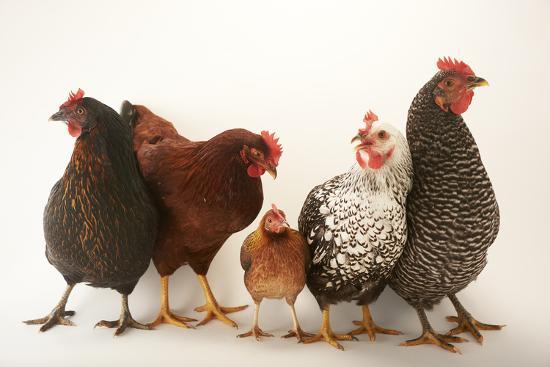Chickens
The Plymouth Rock Chicken Breed
Plymouth Rock chickens are good all-rounders. They are a dual-purpose bird, meaning they lay a high number of eggs and produce tasty meat.
They also make great backyard pets, particularly for families with children or people that have never owned chickens before.
Table of Contents
Breed Varieties
There are multiple varieties of Plymouth Rock chickens. The original and most common is the Barred Plymouth Rock (also known as the Barred Rock).
The White Plymouth Rock is also common. All other varieties are rare. These include:
- Black
- Blue
- Buff
- Colombian
- Partridge
- Silver Penciled
Smaller bantam Plymouth Rock chickens also exist.
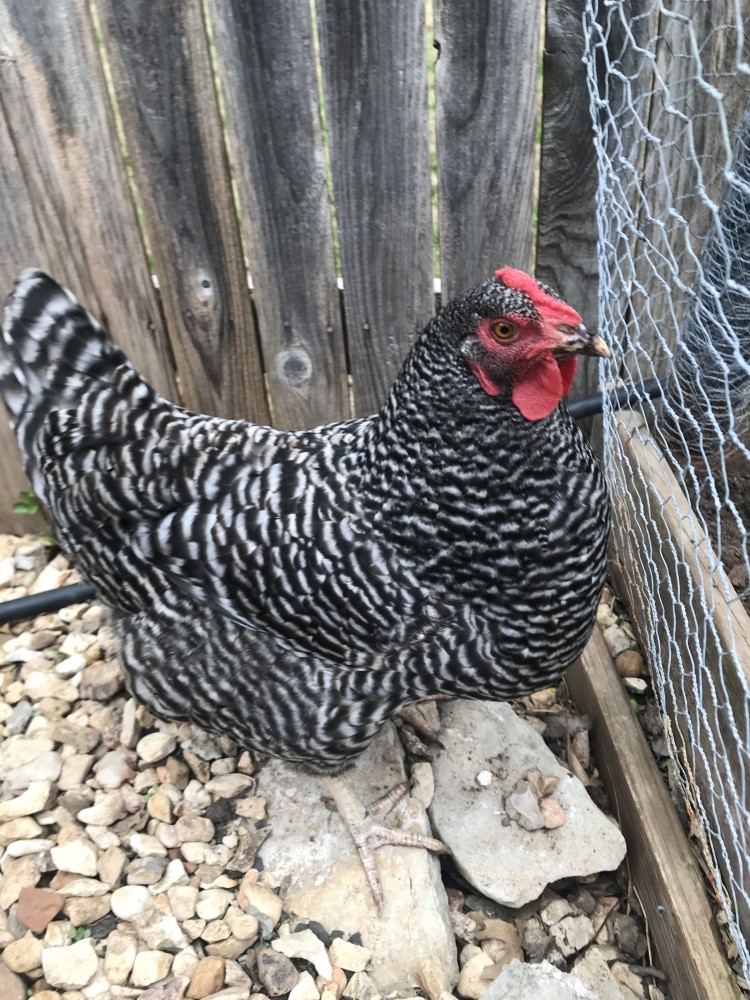
History
The Plymouth Rock is one of North America’s oldest chicken breeds. They were first recorded in Massachusetts in 1849.
They were officially acknowledged by the American Poultry Association is 1874.
They were named ‘Plymouth Rock’ after the historically significant place in Massachusetts where pilgrims landed in 1620.
Throughout World War Two it was a very popular dual-purpose chicken.
After the war, the chicken industry grew. They required breeds that were able to grow faster (for meat) and lay eggs more often.
The Plymouth Rock was inferior to other breeds and sadly began to decrease in popularity.
Over the last couple of decades, they have begun to grow again in popularity as backyard pets.
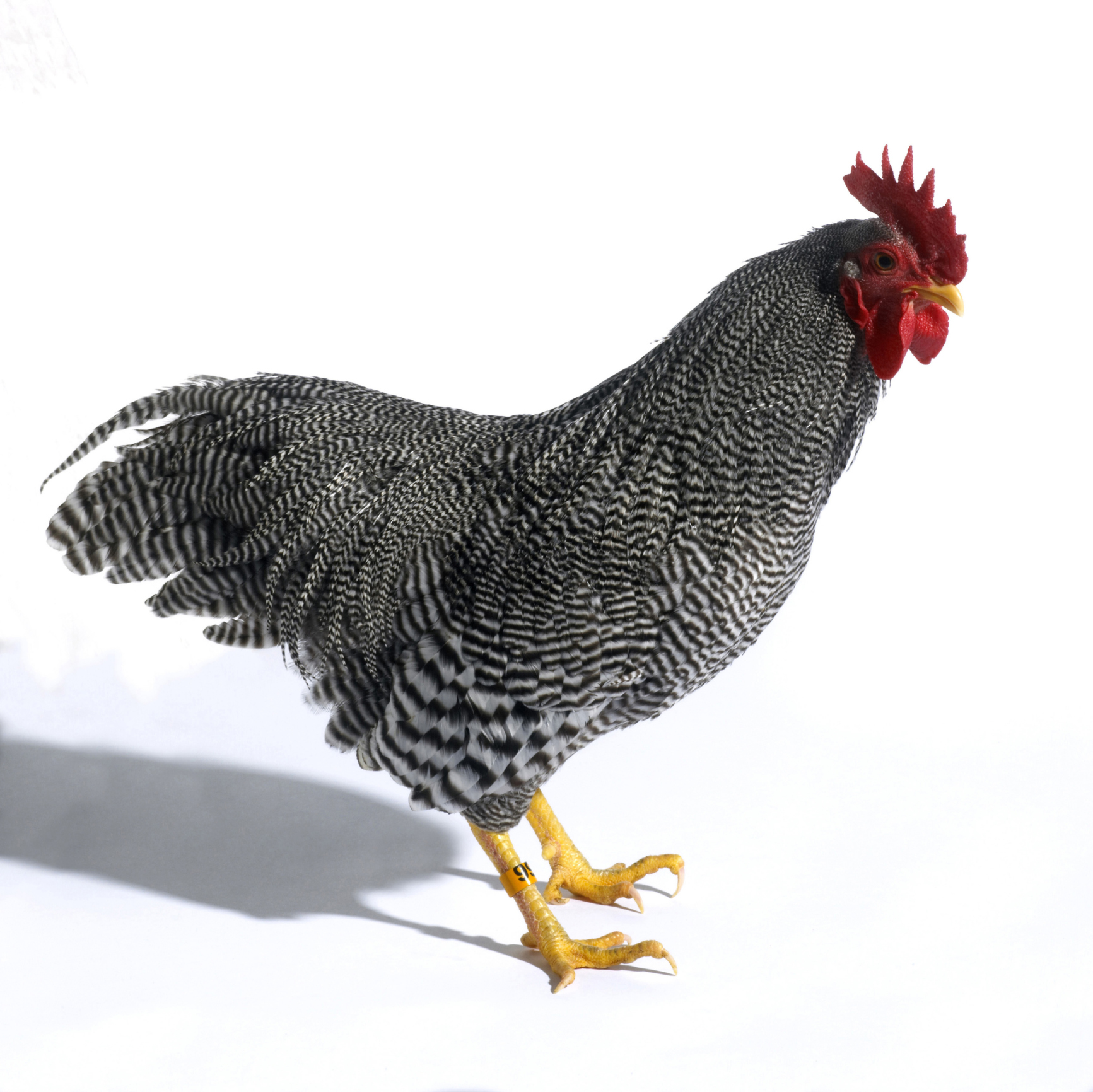
Appearance
Plymouth Rocks are large, sturdy chickens. They have a triangular body, full breast and broad back.
They have very soft and loose feathers.
Barred Plymouth Rocks’ feathers have black and white bars that are well defined. Hens typically have darker feathers than roosters.
Their legs and beak are bright yellow. Their face, ear lobes, wattles and single comb are red.
Size and Health
Plymouth Rock hens weigh around 3kg and roosters around 3.5kg. Plymouth Rock bantams are smaller – the hens are 1.2kg and the roosters 1.4kg.
They are generally a healthy breed with no major issues. Regularly check them for mites as you would with any chicken breed.
The roosters have particularly long combs and wattles so regularly inspect them, especially in cold areas.
They typically live 8-12 years but can live even longer if cared for well.
Temperament
Plymouth Rock chickens have a lovely temperament. They are friendly and calm.
This makes them very easy to approach and to hold, especially if they have been handled by humans regularly from a young age.
They get along well with other breeds of chicken and very rarely fight or cause issues. They are more likely to be bullied by more aggressive breeds.
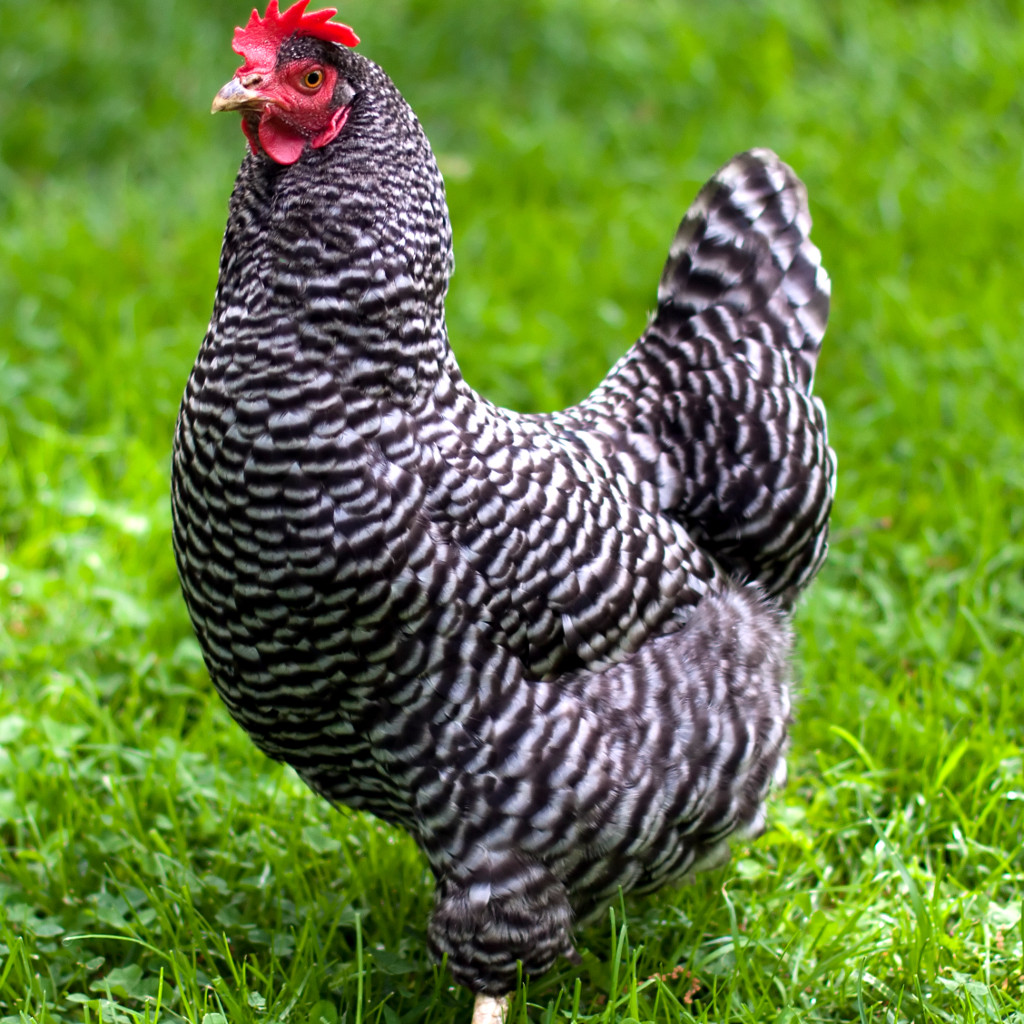
Eggs
Plymouth Rock hens are good egg layers. They lay around 280 eggs per year. Their eggs are large and light brown.
They begin laying when they are between 16 and 22 weeks old. They lay best for the first few years and start declining egg production around 3 years old. Some hens have been known to continue to lay until they are 10!
They lay consistently throughout the year, even when it is cold.
Plymouth Rocks are not particularly broody but can be reliable sitters if they are allowed to keep their eggs.
As Pets
Are you considering getting a Plymouth Rock chicken as a pet?
The breed makes a great backyard chicken. They are easy to approach and friendly. They get along well with humans and can even become lap chickens if handled regularly. They can often be seen following their humans around the yard!
They also get along well with other pets and other chicken breeds. As they are docile, they are prone to being bullied by more confident chicken breeds. Keep an eye on your flock when introducing a Plymouth Rock to other breeds.
They are social so it is always best to keep more than one Plymouth Rock.
Their gentle nature makes them a great breed for first time chicken owners, families with children, schools, nursing homes and community projects. They are also commonly entered into shows.
They do make noise however always at a low volume. This makes them a good choice if you live very close to your neighbours.
Plymouth Rocks are low maintenance. They love to scratch around the yard so it is best to keep them somewhere where they can be allowed to free range and roam for periods each day. They are poor fliers so can be kept behind lower fences.
The Somerzby Homestead chicken coop is a great coop for your Plymouth Rock chickens. It can house up to 12 hens, if they are let out daily to roam around the yard.
The covered run area allows them to peck around inside the coop whilst still being protected from the weather.
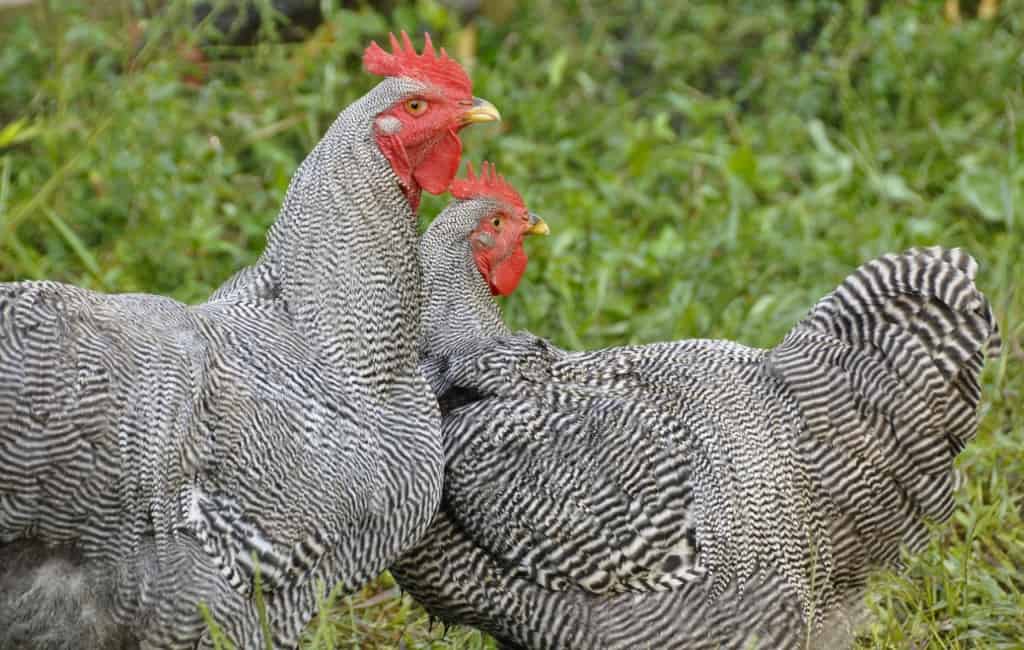
Sources
https://www.thehappychickencoop.com/plymouth-rock-chicken/
https://www.omlet.com.au/breeds/chickens/plymouth_rock/
https://thefrugalchicken.com/plymouth-rock-chickens/




